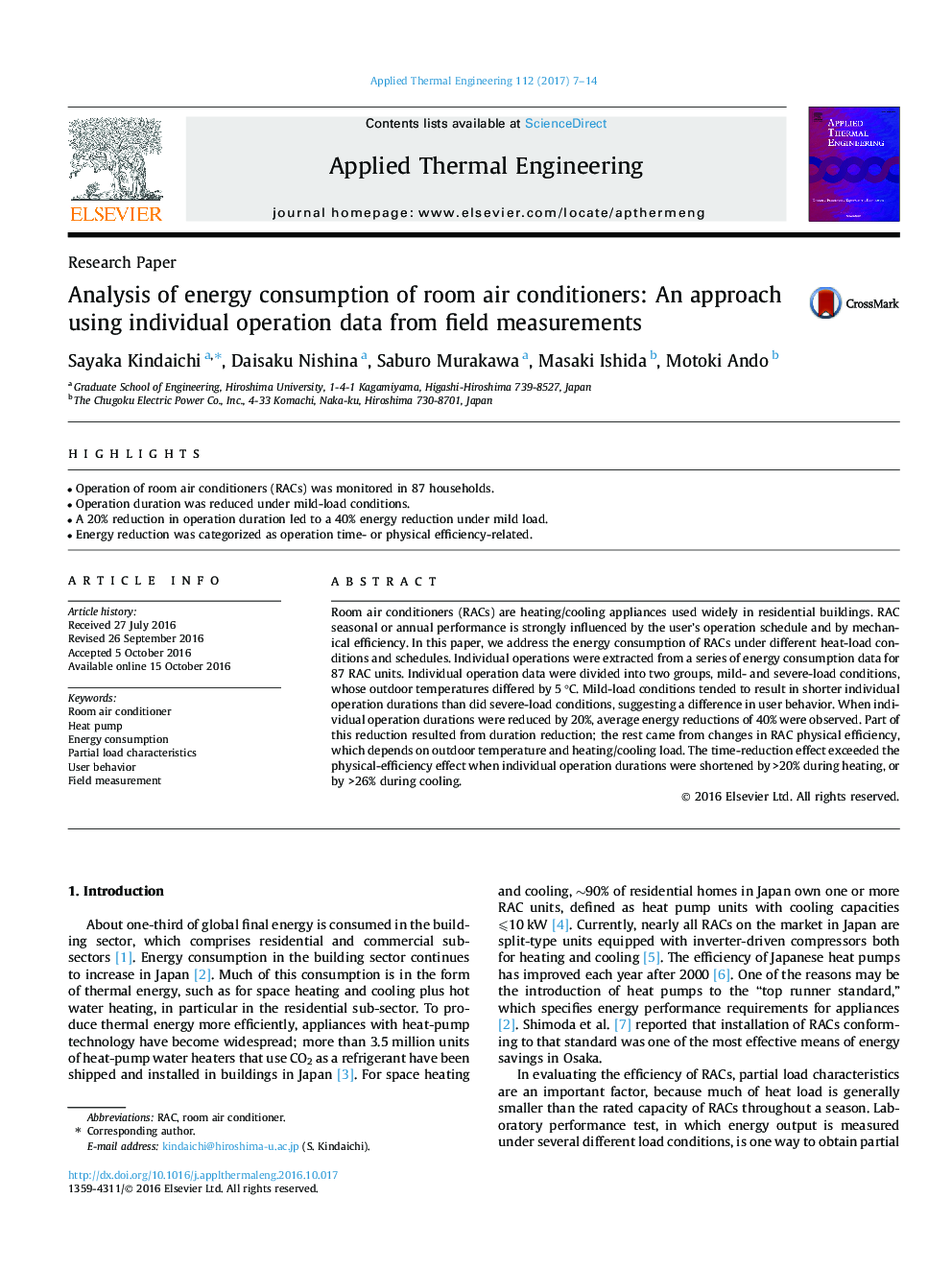| کد مقاله | کد نشریه | سال انتشار | مقاله انگلیسی | نسخه تمام متن |
|---|---|---|---|---|
| 4991678 | 1457117 | 2017 | 8 صفحه PDF | دانلود رایگان |
- Operation of room air conditioners (RACs) was monitored in 87 households.
- Operation duration was reduced under mild-load conditions.
- A 20% reduction in operation duration led to a 40% energy reduction under mild load.
- Energy reduction was categorized as operation time- or physical efficiency-related.
Room air conditioners (RACs) are heating/cooling appliances used widely in residential buildings. RAC seasonal or annual performance is strongly influenced by the user's operation schedule and by mechanical efficiency. In this paper, we address the energy consumption of RACs under different heat-load conditions and schedules. Individual operations were extracted from a series of energy consumption data for 87 RAC units. Individual operation data were divided into two groups, mild- and severe-load conditions, whose outdoor temperatures differed by 5 °C. Mild-load conditions tended to result in shorter individual operation durations than did severe-load conditions, suggesting a difference in user behavior. When individual operation durations were reduced by 20%, average energy reductions of 40% were observed. Part of this reduction resulted from duration reduction; the rest came from changes in RAC physical efficiency, which depends on outdoor temperature and heating/cooling load. The time-reduction effect exceeded the physical-efficiency effect when individual operation durations were shortened by >20% during heating, or by >26% during cooling.
Journal: Applied Thermal Engineering - Volume 112, 5 February 2017, Pages 7-14
